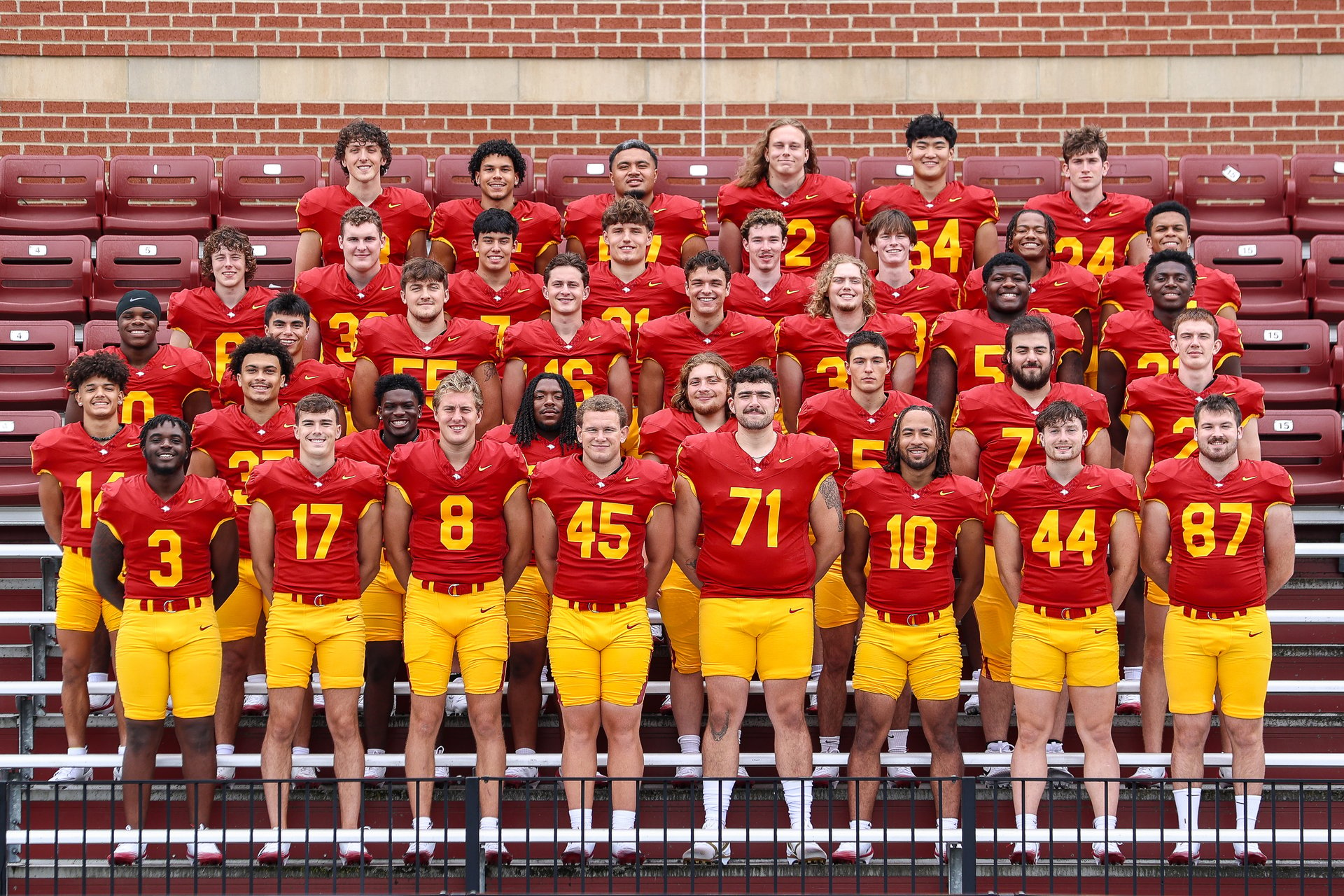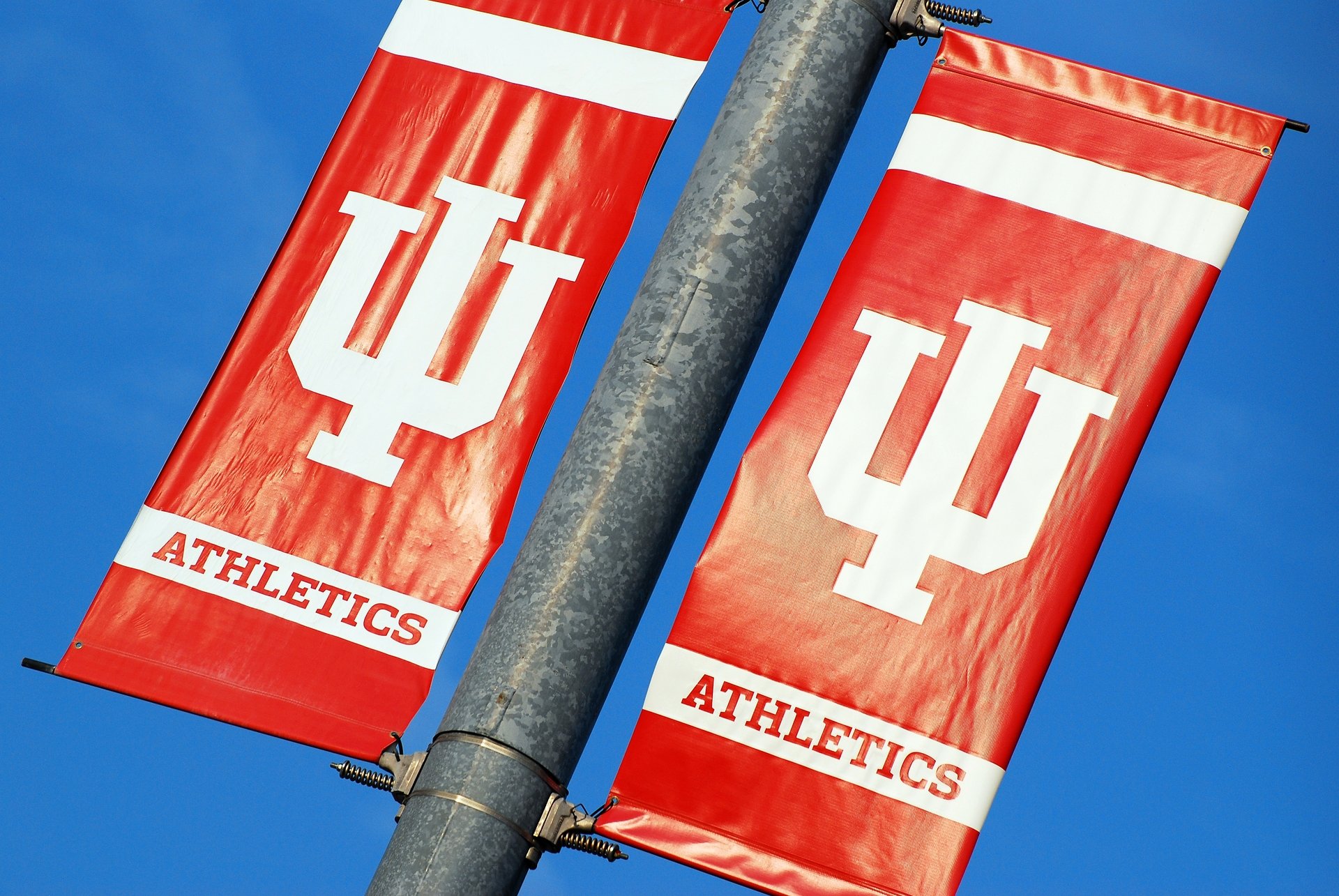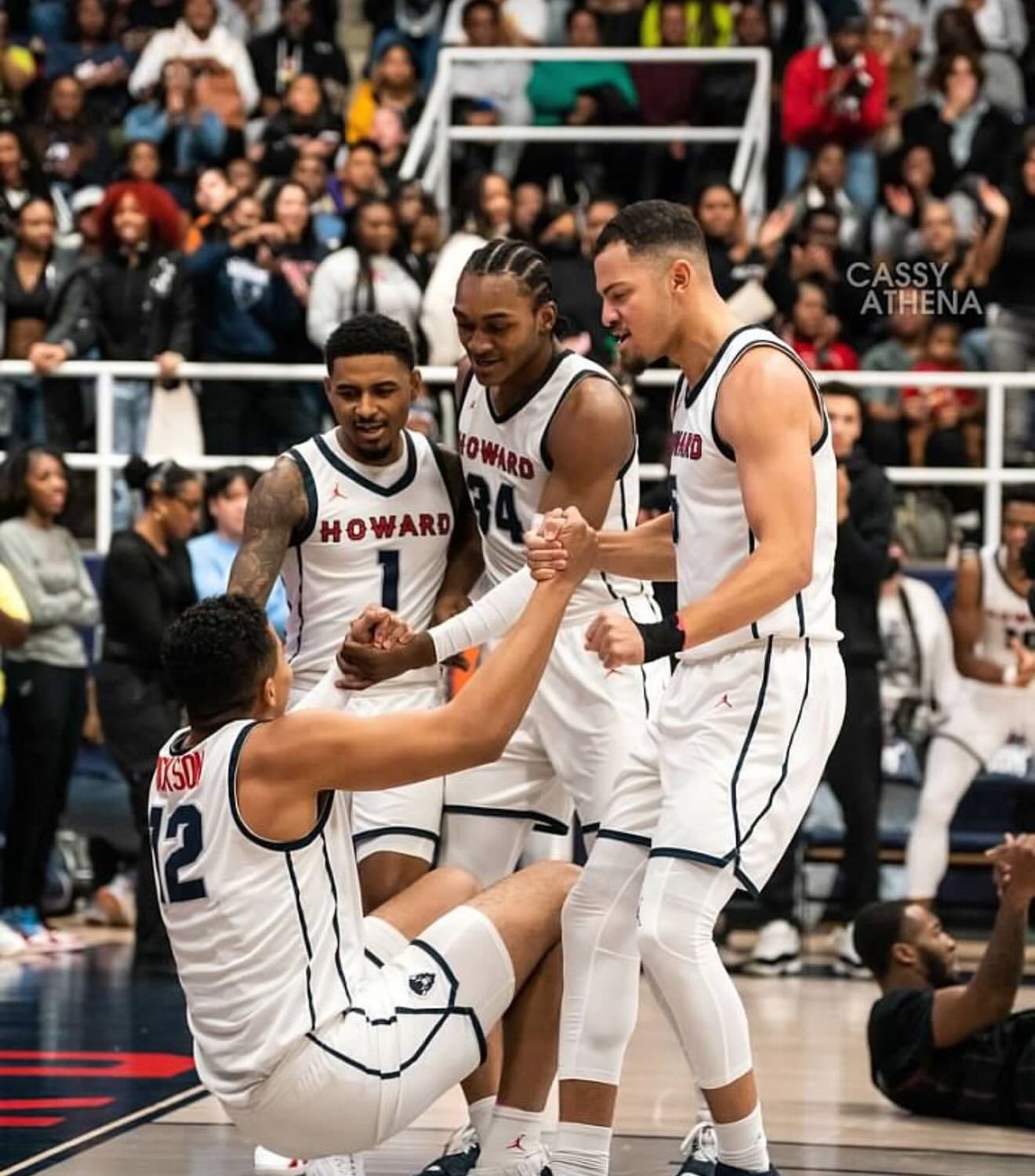Good morning, and thanks for spending part of your day with Extra Points.
I’m still on vacation, and won’t get back to my desk until Thursday. But today, Friend of the Newsletter Andy Wittry has a cool story for you about the financial math behind early season college basketball tournaments, and how the Million Dollar NIL Tournament could find a way to make the math….math.
Here’s Andy:
Studio behind disruptive men’s basketball MTE could produce docuseries, summer event to recoup NIL payments
The Players Era Festival, a self-described “new groundbreaking college basketball tournament,” will debut in November in Las Vegas after providing the eye-catching opportunity for each team’s players to earn $1 million in NIL compensation.
The NIL activities, with a value of “at least” $1 million per team, are “separate from competition,” according to the Players Era Festival’s website. The players on the winning team will reportedly receive an additional $1 million.
Given the scale of the NIL opportunities, the expenses for eight teams playing three games each in a multi-team event (MTE) could be unprecedented.
How do the event’s creators – the independent content studio EverWonder Studio and AND1 Basketball founder and former CEO Seth Berger – and their investors plan on recouping their investment?
Berger and EverWonder Studio CEO Ian Orefice declined to comment through a spokesperson. However, their goals extend beyond annual MTEs in November that provide players with earning opportunities. They’ve considered creating a season-long docuseries or events elsewhere in the calendar, according to a copy of one school’s invitation letter.
EverWonder Studio is financially backed by RedBird IMI. RedBird IMI is a “joint investment vehicle focused on acquiring, investing in and building large scale media, entertainment and sports content properties,” according to RedBird Capital Partners’ website.
This newsletter is brought to you in part by GenTeal Apparel:

Embark on summer adventure with the Rafter Shorts from GenTeal Apparel. Comfortable, stylish and suitable for land and sea, subscribers of Extra Points will be able to enjoy 15 percent off their first order by using this one-time code EXTRAPOINTS15.
Invitation letter references ‘season-long non-fiction storytelling’
In EverWonder Studio’s signed invitation letter to recent midmajor darling FAU, it promised good-faith efforts to arrange “season-long non-fiction storytelling and distribution opportunities” for the school’s consideration. Michigan hired former FAU head coach Dusty May in the offseason and FAU is no longer in the 2024 field. Michigan is committed to participate in the 2025 season.
Streaming platforms, especially Netflix, have invested in serialized sports series, such Netflix’s Drive to Survive (F1), Full Swing (PGA TOUR) and Quarterback (NFL). The Athletic reported Netflix has had discussions with the SEC to produce an “immersive documentary” during the upcoming season.
“I definitely heard from a documentary standpoint, I think everyone’s looking to capture what F1 did with their docuseries,” said San Diego State AD JD Wicker, whose Aztecs will participate in the Players Era Festival. “There’s definitely an appetite for that type of content out there.”
Alabama, Creighton, Houston, Notre Dame, Oregon, Rutgers and Texas A&M round out this year’s eight participants.
Amazon Prime Video produced an eight-episode series about Michigan’s 2017 football season. A brief HBO series featured the football teams at Arizona State, Florida, Penn State and Washington State in 2019. However, athletic departments or their conference TV partners have typically been responsible for producing documentary-style features about current Division I athletes.
There’s a reason for that. A conference network might already own those rights.
For example, there are notable hurdles for a Big Ten program to participate in a series that’s produced by an entity other than the Big Ten Network.
The Washington Post reported how the Big Ten Network sent the University of Maryland a letter in 2022 that shut down the university’s plans to launch a subscription streaming service through the firm Sport & Story. Currently, some athletic departments or NIL collectives can charge fans a monthly or annual fee for paywalled content. That content sometimes includes documentaries.
In its letter to Maryland, the Big Ten Network said it “owns distribution rights to all Ancillary Programming” outside of the athletic department website. Maryland subsequently removed previous online and social media announcements of its plans.
A quarter of this year’s Players Era Festival participants will be Big Ten schools – Rutgers and Oregon.
Coaching staffs have long controlled media access within their programs. Serialized documentaries could potentially provide the tournament organizers and/or the schools themselves with a new revenue stream, plus a way to drive fan engagement.
EverWonder Studio’s financial investment in the tournament makes the prospect of a season-long docuseries all the more interesting, especially if a large streaming service acquires a potential series.
Given the margins of a college basketball tournament that’s not the NCAA tournament, is a potential docuseries the primary financial draw for investors?
89 Blocks Holdings, LLC – the official name of the one-year-old company that does business as EverWonder Studio – has filed a couple of trademark applications this year. One is for Players Era to be used for athletic apparel and footwear.
The LLC filed another application regarding educational and entertainment content available through video-on-demand service, although it’s unclear if that trademark is related to the Players Era Festival.
Here are the NIL opportunities tied to past tournaments
Past men’s basketball events have offered smaller-scale NIL opportunities.
The sports and entertainment marketing group Gazelle Group owns and operates the postseason CBI. The 2023 CBI offered payments ranging from $25,000 to the winning team’s players to $2,500 for the semifinalists.
The University of Colorado signed a contract with Gazelle Group to play in the 2023 Sunshine Slam. Gazelle Group agreed to pay a Colorado collective $5,000 for the Buffaloes’ participation.
A 2022 Peacock exclusive between Baylor and Gonzaga offered players the opportunity to earn NIL compensation. Most players earned roughly $8,000 to promote the event’s sponsors, according to a source familiar with the arrangement, who speculated that at least one star player might’ve earned even more.
The 2025 Players Era Festival field will expand to 18 teams, according to the Players Era website, which will further increase future costs.
Given the margins and interest in non-conference tournaments – the 2023 Maui Invitational averaged 677,000 viewers per game across ESPN’s networks – the event organizers will need to produce millions in revenue from the startup tournament and associated programming. When news of the tournament first broke, Matt wrote that he was concerend the TV ratings from early-season basketball events wouldn’t be able to support those high NIL fees. And he isn’t alone in that worry.
“I’m deeply concerned for the players that the math right now doesn’t produce the benefit to them that they’re being promised unless RedBird IMI or somebody is willing to backstop those promises one-hundred percent,” said Rick Giles, the president of Gazelle Group.
A media contact for RedBird IMI didn’t respond to an email or voicemail request for comment.
$1 million is a ‘significant number for us’
Notably, there’s no mention of NIL compensation in the copy of the signed Players Era Festival invitation letter that Extra Points obtained. EP also obtained a copy of Texas A&M’s signed contract with EverWonder Studio. However, Texas A&M redacted several clauses regarding event participation, ticket pricing, and the contract term and termination. There isn’t a reference to player compensation in the unredacted portion.
EverWonder Studio will handle player compensation through separate agreements with the NIL collectives of the participating schools. The collectives will receive the compensation and they’re responsible for fulfilling the required NIL agreements.
The agency Student Athlete NIL (SANIL) operates dozens of NIL collectives, including future Players Era Festival participants such as Rutgers, Saint Joseph’s and Syracuse. SANIL founder and co-chairman Jason Belzer confirmed SANIL signed contracts with EverWonder Studio months ago.
Player compensation will be distributed at a collective’s discretion. For example, there’s no requirement that every player on a roster receives equal compensation.
Almost two years ago, the MESA Foundation, a nonprofit collective that supports San Diego State, received its 501(c)(3) determination letter from the IRS. After receiving the letter in early October 2022, the collective reported just shy of $190,000 in revenue for the shortened 2022 calendar year.
Now, the Players Era Festival has promised San Diego State and its fellow participants a combined seven figures in NIL payments for their participation in a three-game MTE.
“It’s a significant number for us, for sure,” said Wicker. “We haven’t been that team that’s out there with the one-and-dones. Whatever the max number of stars you can get, that isn’t how we’ve built our program. The same can be said for how we’ve done it in the NIL era to this point but obviously having that amount of money now at our disposal gives us some more freedoms.
“[Brian Dutcher] and the staff are very good at finding young men who fit within the culture of our program. We’re not just going to go start throwing money at people.”
This newsletter is brought to you by Short’s Travel Management
College sports are becoming increasingly more complicated, as anybody who reads this newsletter understands. Administrators need to juggle legal settlements, NIL budgets, the need to find new revenue sources, and oh yeah, the athletic, physical and emotional needs of hundreds of athletes.
The last thing anybody needs is something else to worry about. That’s where Short’s comes in. As a travel management company that completely specializes in college athletics travel, Short’s is there to help make sure your athletes arrive exactly where they need to, on time, on budget, every time.

Short's Travel Management. Team Travel Made Easy.
Players Era Festival affecting other November MTEs
Back in May, Matt wondered if a $1 million payout would be enough money to meaningfully change scheduling decisions for schools. The early returns seem to indicate that…yes, it really is.
The compensation is a strong enough incentive that some men’s basketball programs have exited contracts with legacy non-conference tournaments, despite the associated termination fees.
“It’s a big reason why so many of these schools wanted to participate in this event,” Belzer said. “It’s quote-unquote low-cost, high return, because you get to play against really good competition and you get paid a million dollars. That’s a pretty good ROI for anybody at the end of the day.
“I’ll put it this way. I don’t think there’s one school that wouldn’t participate in an event like this assuming that they can make their schedule work and they don’t have any other commitments or obligations.”
In May, Creighton opted out of the Battle 4 Atlantis to claim the eighth and final spot in the inaugural Players Era Festival. CBS Sports’ Matt Norlander reported that Baylor recently made a similar decision, leaving the 2025 Maui Invitational field. For reference, participants in the 2024 Maui Invitational agreed to a $200,000 termination fee.
A testimonial from Baylor coach Scott Drew is already on the Players Era Festival website.
When discussing the state of men’s basketball MTEs against the backdrop of the evolving player compensation modes, Wicker cited the axiom that the only constant is change.
“I’m going to age myself here but I used to get so fired up to buy the Street & Smith’s basketball edition back in the early ‘80s and look at all the different four-team holiday tournaments and who was doing what,” Wicker said. “Me and my dad would travel with Southern Miss, because we were friends with the coaching staff, to those holiday tournaments and it’s just evolved to something different.
“There’s so much compelling opportunity around the holidays with these tournaments and TV needs that content and wants that content, that it’ll get figured out.”
The Players Era Festival invitation letter also said the invited school will receive a “first-look opportunity for Players First’s other annual events to be created in the future.” The letter listed a summer event as an example.
“We ask a lot of student-athletes right now,” Wicker said. “I don’t know where I’m at on the summer side of things yet. That’s still something to think about so we’ll see where that goes, but definitely more on the docuseries side. I definitely heard a lot about that.”
What will the final contract look like?
One school’s invitation letter, which EverWonder Studio CEO Orefice signed, served as “the foundation” for a future longform agreement. The invitation letter also invited the school to Players Era Festival events in 2025 and 2026, each of which could include up to four games rather than three.
In EverWonder Studio’s invitation letter, it agreed to pay the school a $50,000 stipend for airfare and lodging, plus an additional $50,000.
If all eight teams in the inaugural Players Era Festival have the same terms, then the organizers committed to pay – or at least secure from third-party advertisers – $9.8 million just to the participating schools and their players in the first year. That doesn’t include other tournament expenses such as facility rentals, operations, marketing or security.
For reference, Maui Invitational host Chaminade University agreed to reimburse 2024 participants for the cost of the lowest, nonrefundable, advance-purchase commercial coach airfare, plus five nights of hotel stays, $2,500 for ground transportation and an $85 per diem for each member of the traveling party.
ESPN Events agreed to pay LSU a $7,500 travel stipend for the 2023 Charleston Classic, while providing the Tigers with 14 hotel rooms and one suite for four nights at a “quality hotel” and one event gift for each member of the travel party.
The signed invitation letter said the university and its men’s basketball team grant EverWonder Studio and Players First permission to publicly use the names, images and marks of its players and employees for promotional purposes.
What those promotional purposes will look like? That appears to still be TBA.


















